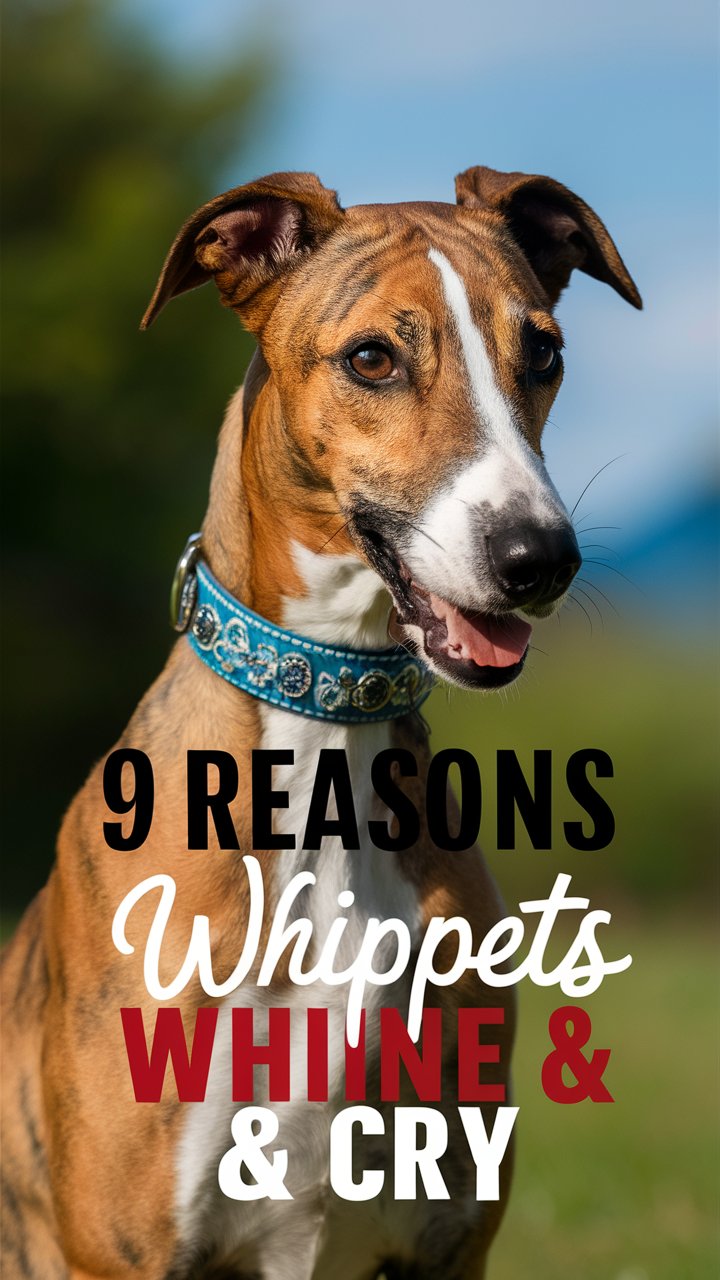Whippets are elegant, sensitive, and expressive dogs. But if your whippet often grunts, groans, or even sighs loudly, it’s natural to wonder:
👉 “Is my whippet just being dramatic, or is something actually wrong?”
The truth is, whippets groan for several reasons — some harmless, some serious. Understanding the cause is key to keeping your pup happy and healthy.
In this article, you’ll discover:
- 11 real reasons why whippets grunt & groan (from science-backed to emotional).
- Signs that groaning could mean a health issue.
- Pro tips to help reduce unnecessary groaning without ignoring your pup’s needs.
- FAQs from real whippet owners.
Let’s dive in 🐾
11 Reasons Why Your Whippet Grunts & Groans
1. Attention-Seeking Behavior
Whippets are intelligent and quickly learn patterns. If groaning = cuddles, they’ll keep doing it. This is called “reinforced behavior.”
✅ Pro Tip: Don’t always respond immediately. Instead, reward them only when they’re calm and quiet.
2. Expressing Bliss & Contentment
Some whippets are just more vocal. They may grunt when you scratch their favorite spot, after a good meal, or when they curl up in bed.
📌 Think of it like a human saying “Ahhh, that feels good!”
3. Dreaming (Sleep Vocalization)
Dogs dream during the REM cycle. Twitching, paw paddling, and groaning in sleep is perfectly normal.
⚠️ Warning: If groaning is excessive or paired with jerky movements, consult a vet. It could indicate sleep disorders.
4. Growing Pains in Puppies
Young whippets can grunt when their bones and joints grow rapidly. This is short-term but worth monitoring.
💡 Did You Know? Studies show medium-sized breeds like whippets are prone to growth-related discomfort between 4–12 months.
5. Aging & Joint Stiffness
Older whippets often develop arthritis or hip stiffness, leading to more groans when standing up or lying down.
✅ Solution: Joint supplements (glucosamine, chondroitin) and soft orthopedic beds can help.
6. Weight-Related Strain
An overweight whippet will grunt more because excess weight stresses joints, lungs, and muscles.
📌 Ideal whippet weight: 25–40 lbs. Anything beyond that = unhealthy.
7. Pain or Discomfort
Groaning may be a pain signal from:
- Digestive upset (gas, bloating).
- Muscle injuries.
- Dental pain.
- Internal illness.
⚠️ If your whippet suddenly starts groaning more often, don’t ignore it.
8. Disappointment or Frustration
Whippets are sensitive. If they expected a walk, a treat, or playtime and didn’t get it — they may flop down with a dramatic groan.
😂 Owners call this “the whippet sulk.”
9. Emotional Stress or Depression
If your whippet has lost a companion, feels neglected, or has reduced activity, groaning may be an emotional outlet.
🚨 Red Flag: If groaning comes with loss of appetite, oversleeping, or withdrawal, depression could be the cause.
10. Environmental Discomfort
Too hot, too cold, or an uncomfortable sleeping spot may cause restless groaning. Whippets have thin coats and are very sensitive to temperature.
✅ Cozy sweaters and heated dog beds help in winter.
11. Medical Issues (Serious Cases)
Sometimes groaning is a symptom of illness, such as:
- Heart disease (fluid pressure on lungs).
- Respiratory issues.
- Gastric torsion (emergency).
⚠️ If groaning is paired with coughing, breathing difficulty, or lethargy → go to the vet immediately.
5 Pro Tips To Reduce Whippet Groaning
1. Maintain Healthy Weight & Nutrition
- 90% high-quality dog food + 10% healthy treats.
- Add omega-3 for joint health.
- Avoid table scraps that cause bloating.
2. Provide Regular Exercise
- 2 daily walks + playtime keeps their muscles strong.
- Lack of movement → stiff joints → more groaning.
3. Use Positive Reinforcement
Ignore attention-seeking groans. Reward calm behavior. Within weeks, your whippet will learn better communication.
4. Add Enrichment & Emotional Care
Loneliness = vocalization. Engage your whippet with:
- Puzzle toys.
- Playdates with other dogs.
- Dedicated cuddle time.
5. Vet Checkups (Preventive Care)
Annual vet visits help catch:
- Arthritis early.
- Heart/lung problems.
- Silent illnesses that show up as groaning.
FAQs
Q: Is it normal for whippets to groan daily?
👉 Yes, but frequency matters. Occasional groaning = normal. Constant groaning = possible issue.
Q: Should I wake my dog if they groan in sleep?
👉 No. It’s usually just dreaming. Only wake them if groaning seems distressed.
Q: Can stress make a whippet groan?
👉 Absolutely. Whippets are emotionally sensitive. Big changes (moving, new pet, long absence) may trigger groaning.
Final Thoughts
Whippet groaning can mean many things — from pure happiness to genuine pain. As an owner, your role is to observe patterns:
- If groaning happens during cuddles = normal.
- If groaning happens after meals or during rest = monitor.
- If groaning increases suddenly = see a vet.
By maintaining a healthy lifestyle, emotional care, and regular vet checkups, you’ll ensure your whippet’s groans are more about joy than discomfort.
❤️ And let’s be honest — a little whippet groan now and then is part of their charm!
